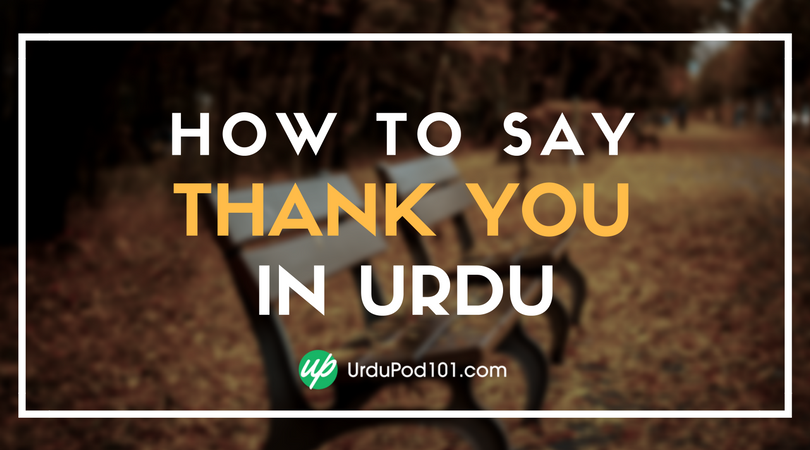
Try finding just one person who has not been affected by the telecommunication industry in some way.
Nowadays, nearly everyone has a mobile phone. While messages sent over SMS and social media make up a large portion of our communication, phone calls are still a crucial aspect of everyday life. Making appointments, ordering pizza, discussing business with a client…all of these things are traditionally done over the phone.
As a foreigner in Pakistan, one of the most important things you’ll learn is how to hold an Urdu phone conversation. By learning how to communicate effectively over the phone, you’ll be more likely to achieve your desired results and leave a positive impression on the other party.
That said, we know how difficult phone calls can be—even in your own language!
To make things a little easier for you, we’ve compiled a list of the most indispensable Urdu phone call phrases for each part of a typical conversation. We’ll also give you some tips on how to make the most of your phone call and provide you with sample conversations where you can see these phrases in action.
Let’s get right to it.
 Table of Contents
Table of Contents
- Must-Know Urdu Phone Vocabulary
- Dialing or Picking up the Phone
- Saying Who You Are
- Stating the Reason for Your Call
- Asking to Speak to Someone
- Asking Someone to Wait
- Leaving a Message
- Asking for Clarification
- Ending the Phone Call
- Conclusion
1. Must-Know Urdu Phone Vocabulary
Before we get ahead of ourselves, let’s go over a brief list of essential Urdu phone vocabulary. Becoming familiar with these Urdu phone words and phrases will prove useful as you march ahead.
- فون (fone) – phone
- موبائل فون (mobile fone) – mobile phone
- پیغام (paighaam) – message / text message
- بیٹری (battery) – battery
- چارجر (charger) – charger
- موبائل سکرین (mobile screen) – mobile screen
- رنگ ٹون (ringtone) – ringtone
- فون نمبر (fone number) – phone number
- کال کرنا (call kerna) – to make a phone call
- واپسی کال کرنا (wapsi call kerna) – to call back
- نمبر ملانا (number milana) – to dial a number
- فون اٹھانا (fone uthana) – to pick up the phone
- فون رکھنا (fone rakhna) – to hang up
- پیغام چھوڑنا (paigham chorna) – to leave a message
2. Dialing or Picking up the Phone
A smart start will always save you time and effort. In this case, that means beginning your phone call with an appropriate greeting.
ہیلو
(Hello.)
Hello.
ہیلو (hello) is a common Urdu phone greeting that you can always use to start a conversation, whether you’re the caller or the receiver.
السلام علیکم
(Assalam-u-alaikum.)
Hello.
السلام علیکم (assalam-u-alaikum) is another phrase that can be used by either the caller or the receiver.
وعلیکم السلام
(Wa-alaikum-us-salam.)
Peace be upon you as well.
Be mindful about using وعلیکم السلام (wa-alaikum-us-salam) during your conversation; it should only be used as a response to the previous greeting, السلام علیکم (assalam-u-alaikum).
جی کون؟
(Ji kaun?)
Who is it?
This is an informal way of picking up the phone, used to inquire about the identity of the caller.
جی، میں سن رہا/رہی ہوں۔
(Ji, mei sun raha/rahi hun.)
Yes, I am listening.
You can always include this sentence in your greeting to assure the caller that you’re available to talk and can hear them well.
Male speakers can use جی میں سن رہا ہوں۔ (Ji, mei sun raha hun) and female speakers can use جی میں سن رہی ہوں۔ (Ji, mei sun rahi hun).
میں آپ کی کیا مدد کر سکتا/سکتی ہوں؟
(Mei aap ki kia madad ker sakta/sakti hun?)
How may I help you?
This is a formal way to pick up the phone in Urdu, most often used by receptionists and phone operators.
Male speakers would say میں آپ کی کیا مدد کر سکتا ہوں؟ (Mei aap ki kia madad ker sakta hun?) and female speakers would say میں آپ کی کیا مدد کر سکتی ہوں؟ (Mei aap ki kia madad ker sakti hun?).
- → Visit our blog post How to Say Hello in Urdu to learn even more useful vocabulary and to gain additional cultural insights!

3. Saying Who You Are
Once you’ve greeted the other party, it’s expected that you introduce yourself.
A male speaker can use the following sentence to introduce himself; simply fill the blank space with your name.
میں ــــــــــ بات کر رہا ہوں۔
(Mei ____ baat ker raha hun.)
It’s _____.
A female can use the same sentence pattern by making the following modifications.
میں ــــــــــ بات کر رہی ہوں۔
(Mei ____ baat ker rahi hun.)
It’s _____.
This next phrase pattern can be used by both male and female speakers:
میرا نام ـــــــ ہے۔
(Mera naam ____ hai.)
My name is _____.
- → You can learn more about self-introductions in our practical article How to Introduce Yourself in Urdu!
4. Stating the Reason for Your Call
Below, you’ll find a few Urdu phone call phrases you can use to let the other party know why you’re calling. This might be the most important part of your conversation, so learn these phrases well!
میں ایک ملاقات کے لئے وقت مقرر کرنا چاہتا/چاہتی ہوں۔
(Mei aik mulaqat kay liye waqt muqarrar kerna chahta/chahti hun.)
I want to make an appointment.
Male speakers will use چاہتا ہوں (chahta hun), while female speakers will use the form چاہتی ہوں (chahti hun).

آپ نے تھوڑی دیر پہلے مجھے کال کی تھی
(Aap nay thori der pehlay mujhay call ki thi.)
You called me a little while ago.
مجھے ایک پیغام موصول ہوا اس لئے میں کال کر رہا/رہی ہوں۔
(Muhjay aik paigham mosool hua iss liye mei call ker raha/rahi hun.)
I received a message, so I am calling.
Male speakers will use رہا ہوں (raha hun), while female speakers will use the form رہی ہوں (rahi hun).
5. Asking to Speak to Someone
If you’re calling a business, company, or office, you may first speak to a receptionist or telephone exchange operator. In this case, you can use one of the following sentence patterns to ask the receiver if you can be connected to the right person. Just fill the blank spaces with the name (and job title, if required) of the person you’re seeking.
میں ــــــ سے بات کرنا چاہتا/چاہتی ہوں۔
(Mei ___ say baat kerna chahta/chahti hun.)
I want to talk to ___.
Here, male speakers will use چاہتا ہوں (chahta hun) and female speakers will use چاہتی ہوں (chahti hun).
کیا میں ــــــ سے بات کرسکتا/سکتی ہوں۔
(Kia mei ___ say baat ker sakta/sakti hun.)
Can I talk to ___.
Again, note the appropriate forms for each gender: Male speakers will use سکتا ہوں (sakta hun) and female speakers will use سکتی ہوں (sakti hun).
کیا آپ میری کال ــــــ کو ٹرانسفر کر سکتے ہیں؟
(Kia aap meri call ___ ko transfer ker saktay hain?)
Could you please transfer my call to ___?
The sentence above can be used by both male and female speakers. Nevertheless, the speaker must keep in mind the gender of the listener. If the listener is male, the speaker will use سکتے ہیں (saktay hain) at the end of the sentence; if the listener is female, the speaker will use سکتی ہیں (sakti hain).

6. Asking Someone to Wait
If you happen to be the receiver of the call, you may have to request that the other party wait while you transfer them or gather information. Here are a few phrases you can use to do this:
کیا آپ تھوڑی دیر کے لئے میرے ساتھ لائن پر رہ سکتے ہیں۔
(Kia aap thori der kay liye meray sath line per reh saktay hain?)
Can you stay on the line with me for a short while?
براہِ مہربانی، تھوڑی دیر انتظار کیجئے۔
(Barah-e-meharbani thori der intezar kijiye.)
Please, wait for a while.
کیا آپ انتظار کرنا پسند کریں گے/گی؟
(Kia aap intezaar kerna pasand karain gay/gi?)
Would you like to wait?
If the other party is male, you’ll use کریں گے (karain gay); if they’re female, you’ll use کریں گی (karain gi).

7. Leaving a Message
In case you’re unable to reach the person you wanted to speak with, you should be able to leave a message for them. Here are a few Urdu phone phrases you can use to do this:
براہِ مہربانی، ان سے کہئیے گا کہ مجھے کال کریں۔
(Barah-e-meharbani, unn say kehiye ga ka mujhay call karain.)
Please, ask him to call me.
مہربانی فرما کر، ان کو بتائیے گا کہ میں نے ان کے لیے کال کی تھی۔
(Meharbani ferma ker, unn ko batayie ga kay ma nay un kay liye call ki thi.)
Please, tell him that I called.
8. Asking for Clarification
As a foreigner, you’ll experience your fair share of communication difficulties when making or receiving a phone call in Urdu. If you’re unable to understand the other person due to a bad connection, background noise, or a lack of sufficient Urdu comprehension practice, you can ask for clarification or repetition using one of these phrases:
معاف کیجئے، کیا آپ اپنی بات دوہرا سکتے/سکتی ہیں؟
(Maaf kijiye, kia aap apni baat dohra saktay/sakti hain?)
Sorry, could you please repeat what you said?
معافی چاہتا/چاہتی ہوں، میں آپ کی آواز نہیں سن پا رہا/رہی۔
(Maafi chahta/chahti hun, mei aap ki aawaz nahin sun pa raha/rahi.)
Sorry, I can’t hear you.
9. Ending the Phone Call
A proper farewell is just as important as a proper greeting. Let’s look at some phrases you can use to end a call in Urdu:
کیا میں آپ کی مزید کچھ مدد کر سکتا/سکتی ہوں؟
(Kia mei aap ki mazeed kuch madad ker sakta/sakti hun?)
Can I help you with anything else?
If you’re male, you will say سکتا ہوں (sakta hun); if you’re female, you will say سکتی ہوں (sakti hun).
آپ کی مدد کا شکریہ۔
(Aap ki madad ka shukria.)
Thank you for your help.
خدا حافظ
(Khuda hafiz.)
Goodbye.

10. Conclusion
In this article, you’ve learned how to talk on the phone in Pakistan using some of the most frequently used Urdu phone call words and phrases. You should now be more confident about making or receiving a phone call in Urdu, but let us know in the comments if you have any questions or want to learn additional phone phrases.
If you feel like you need to study this topic further, create your free lifetime account on UrduPod101.com and explore our vast lesson library! For example:
- Visit our vocabulary list Useful Phrases for a Phone Call to read through even more phrases. You can even listen to their pronunciation!
- Check out our lesson Restaurants – Making Reservations in Urdu to hear a sample phone conversation while gaining practical insight into Pakistani culture and cuisine!
Still hungry for more Urdu knowledge?
We provide tons of free vocabulary lists, audio and video lessons for every level, grammar and pronunciation tips, and a variety of additional resources (such as this Urdu dictionary). It’s our goal to make your Urdu studies both fun and effective, and we provide only the highest-quality lessons and study materials.
Very Happy Urdu Learning!












